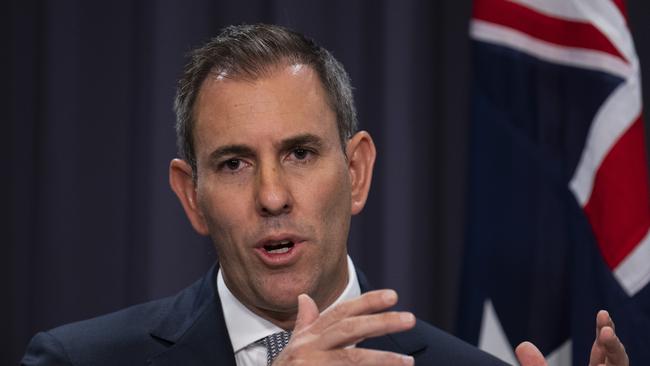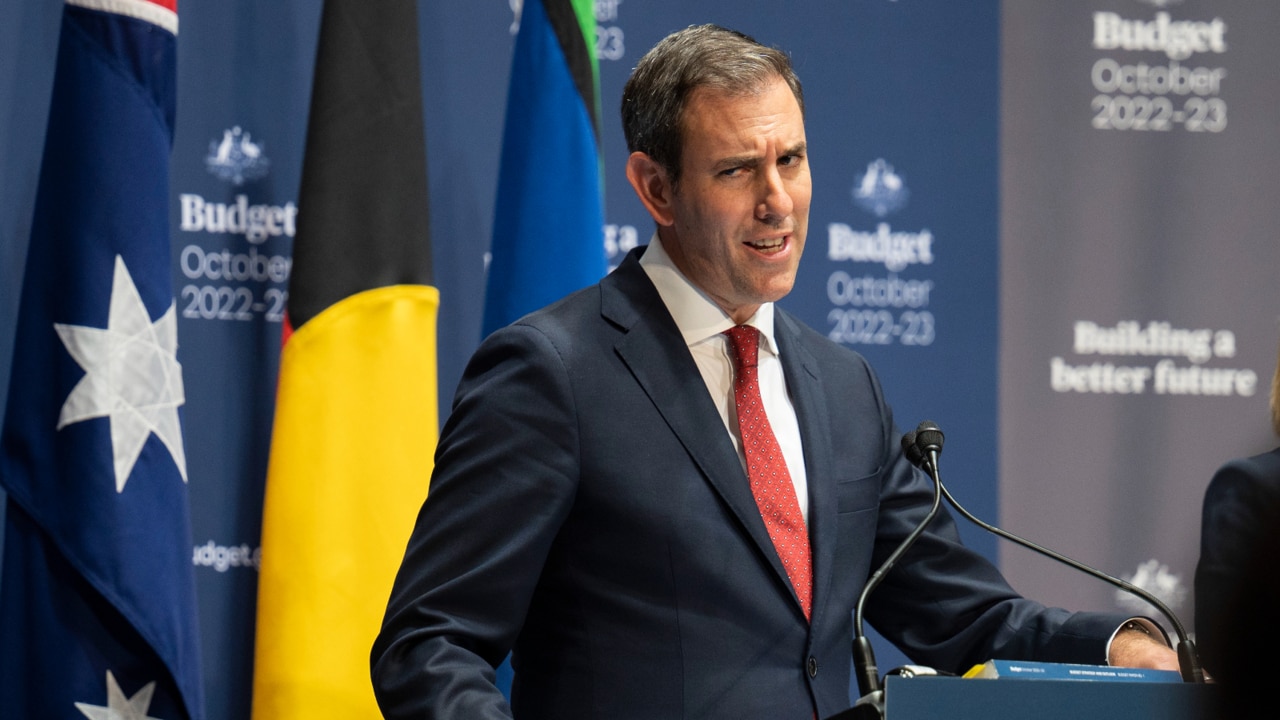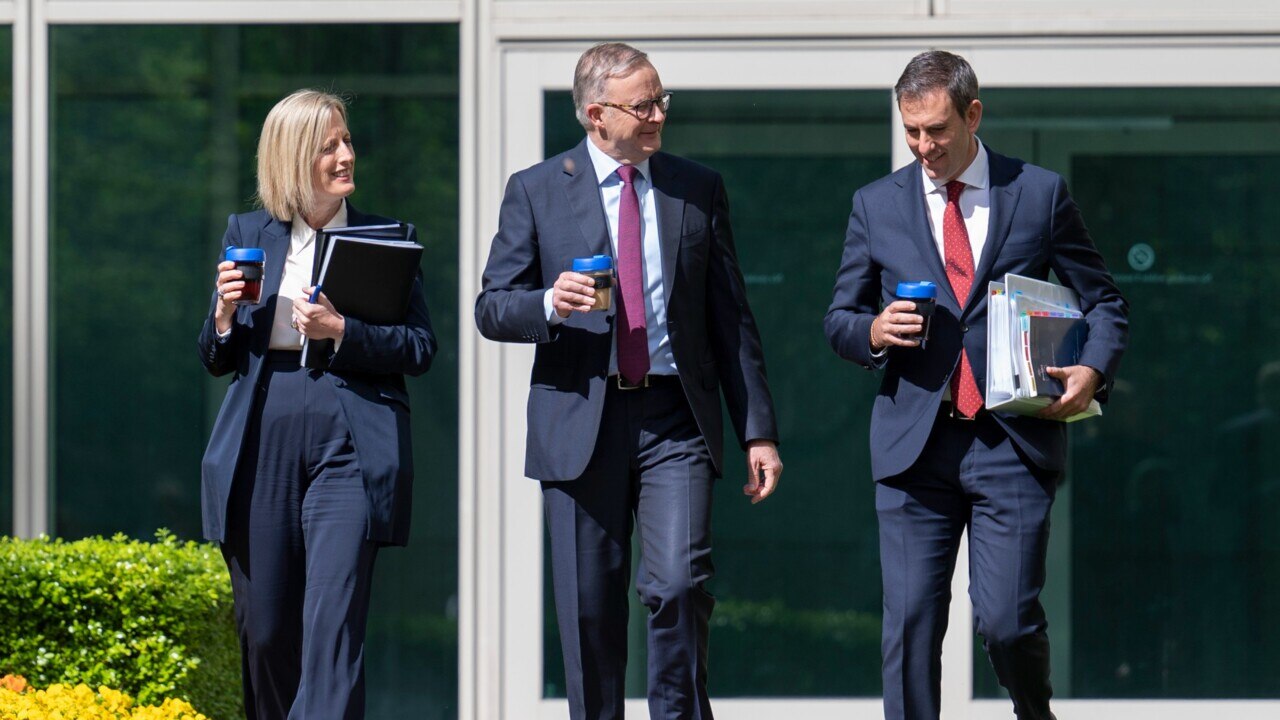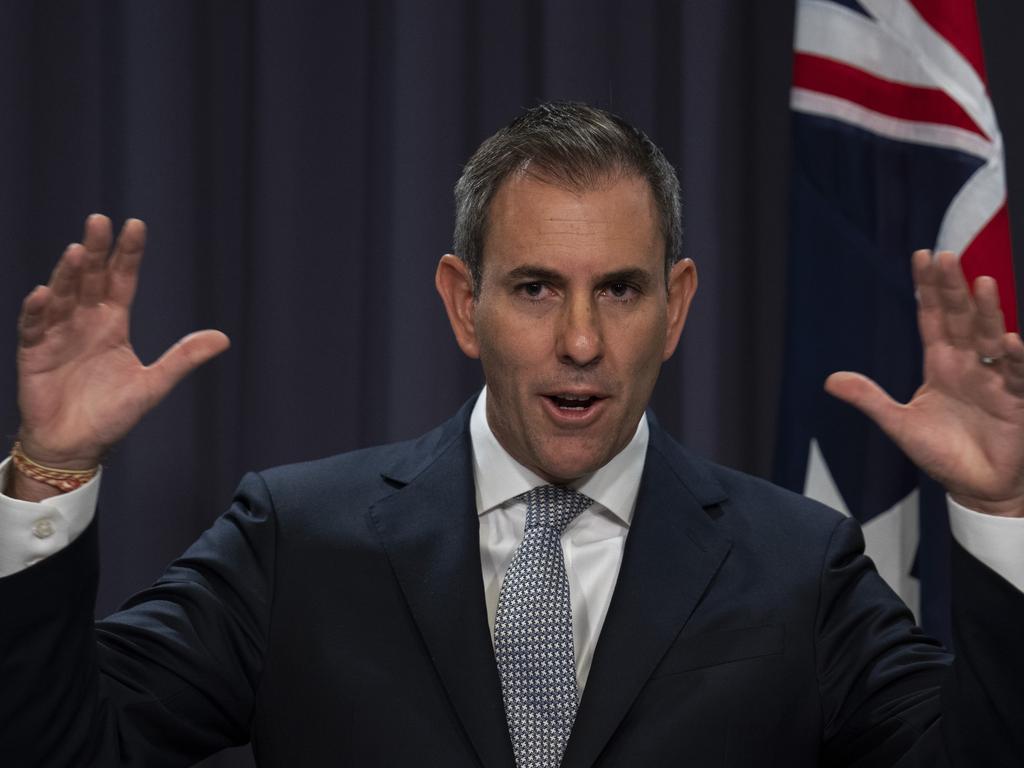Budget 2023: Jim Chalmers to unveil $9.3bn in cost-of-living measures
Jim Chalmers will unveil more than $9bn in cost-of-living measures in his centrepiece budget package, as economists say they will inevitably increase inflation and interest rates.

Jim Chalmers will unveil more than $9bn in cost-of-living measures in his centrepiece budget package, as leading economists say relief for the most vulnerable will inevitably add to inflation and drive interest rates higher.
The Australian has confirmed the Albanese government is still to announce $9.3bn in cost-of-living relief, with an increase to the JobSeeker payment set to cost the budget billions of dollars.
The Morrison government’s $50 a fortnight increase to JobSeeker for more than 1.95 million people cost $9bn.
Economists cautioned that mortgage holders could be the “hidden losers” from Labor’s $14.6bn cost-of-living package aimed at alleviating the financial pressure on the country’s most vulnerable households.
The measures announced so far include $1.5bn in energy bill relief – worth up to $500 for 5.5 million households and one million businesses - $1.9bn in expanding single parenting payments, $1.6bn in cheaper medicines and 60-day scripts and $314m for small business energy efficiency incentives.
Despite the Treasurer’s claims that measures such as energy bill compensation and extra payments to single parents and the unemployed could be fashioned so as to not stimulate further demand, Rich Insights director Chris Richardson said it was inevitable that pumping billions into the economy to help alleviate cost-of-living pressures would have an inflationary impact.
“There is no magic wand,” he said. “When you are trying to fight a cost-of-living crisis, you give people money or save them money, and with that they spend it, and add to demand and to inflation. If their (the government’s) decisions put more money into the economy by around $6bn a year, that adds about a quarter of a percentage point to rates.

“The underlying problem on budget night is that the winners from cost-of-living measures realise they’re winners. The losers (mortgage holders paying higher than otherwise interest payments) don’t realise they’re losers.”
Dr Chalmers said on Monday the cost-of-living package had been “carefully calibrated” and would not add to inflation, after working closely with Treasury and determining which budget measures would have an inflationary impact. “We’re confident what we’ve done here is provide some cost-of-living relief for people doing it tough, but conscious we’ve got this inflationary challenge in our economy, we need to be responsible about what we spend,” he told ABC radio.
It came as a “proud” Anthony Albanese used budget eve to announce 57,000 single parents, including 52,000 women and about 5700 Indigenous carers, would receive $176.90 extra a fortnight in government payments.
The $1.9bn measure will raise the age cut-off for the single parenting payment from eight to 14, meaning a mother can remain on the $922.10 a fortnight benefit until their youngest child turns 14.
At the moment, single parents are transitioned on to the less generous JobSeeker payment when their youngest child turns eight.

Opposition social services spokesman Michael Sukkar said the Coalition would consider the measure in the context of the entire budget, as he called on the government to “finally get inflation under control”.
“If they choose to add fuel to the inflation fire, everyday Australians will suffer with higher mortgages, rents and general costs of living,” he said.
Greens leader Adam Bandt slammed Labor for not fully reversing the Gillard government’s move to slash the single parenting payment from the previous cut-off - when parents were supported until their child was 16.
Greens social services spokeswoman Janet Rice said the parenting payment changes and a speculated $2.85 a day JobSeeker increase were a “kick in the guts”.
Additional reporting: Sarah Ison







To join the conversation, please log in. Don't have an account? Register
Join the conversation, you are commenting as Logout